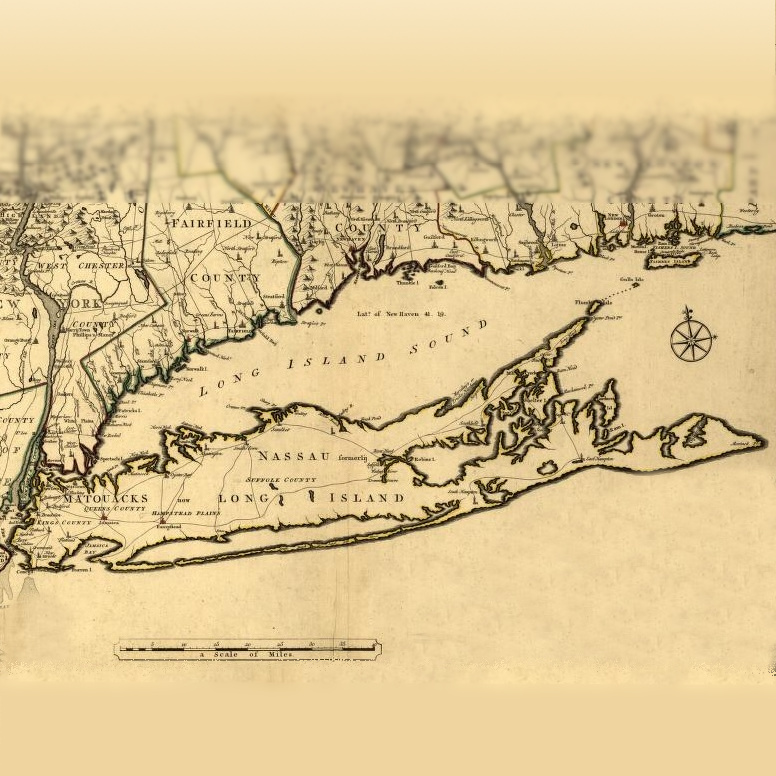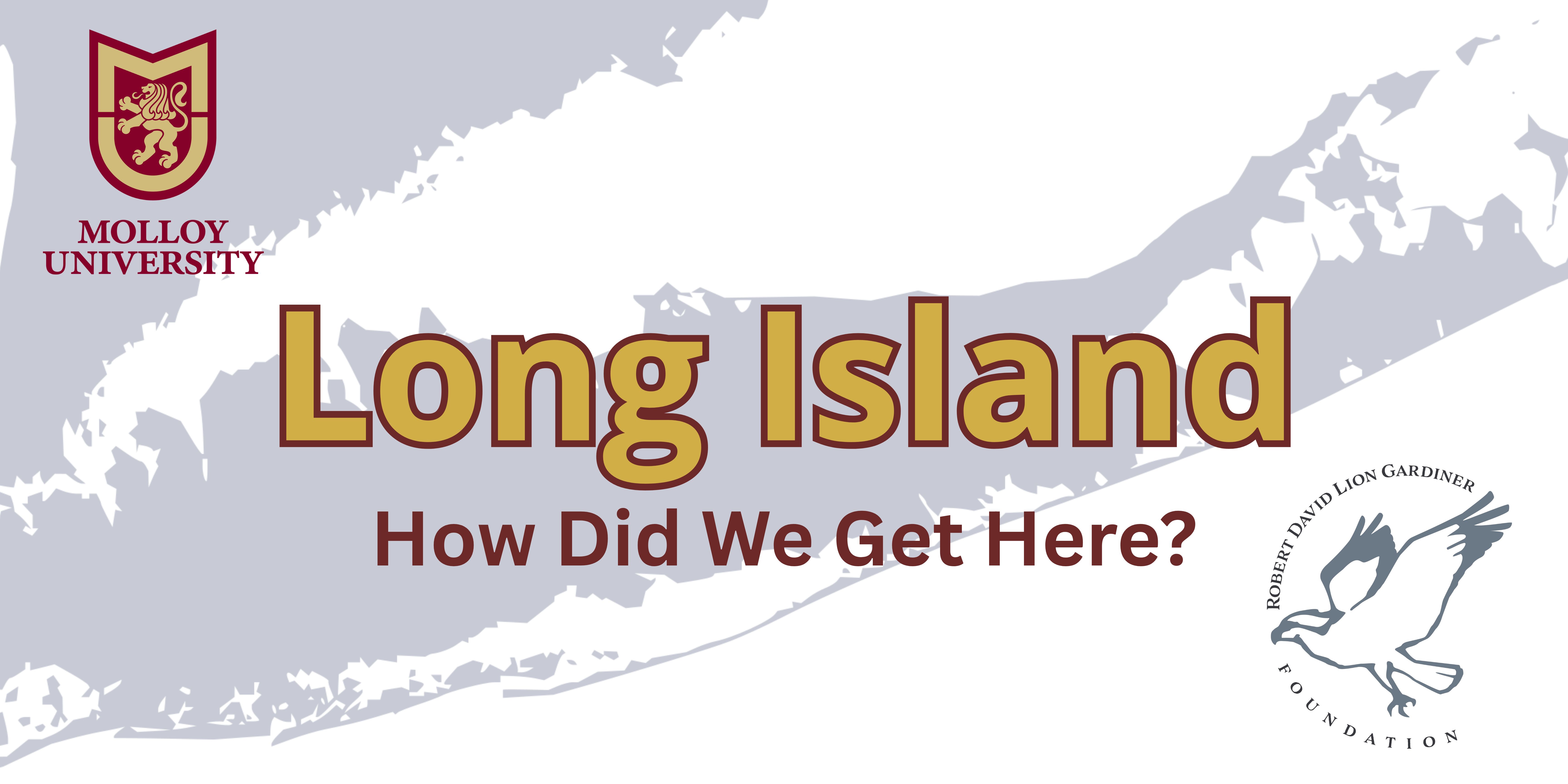Long Island: How Did We Get Here?

Long Island: How Did We Get Here?
Long Island: How Did We Get Here?
Preview—Official Launch Coming in Spring of 2026—Date to be Determined.
With the generous support of a $1.5 million grant from the Robert David Lion Gardiner Foundation, in 2018, Molloy University embarked on an innovative and ambitious project titled "Long Island: How Did We Get Here?" This initiative seeks to inform public policy on Long Island by investigating the historical context of vital issues the region faces today.
By delving into Long Island's rich historical tapestry, this project aims to illuminate the context and relevance of historical events in shaping contemporary public policy initiatives and debates. The goal is to foster a deeper appreciation of our history's impact on how we live today, and to empower citizens to engage meaningfully in critical conversations about the region's past, present, and future.
Gardiner Fellows, 19 doctoral students from the Educational Leadership for Diverse Learning Communities (Ed.D.) program of Molloy's School of Education and Human Services, carried out research in the form of detailed interviews with thought leaders and decision makers who were involved with key historical events about the legacy of historical developments on Long Island, as well as interviews and focus groups with educators and students about the impacts our history has on them today.
Informed by the research of the Gardiner Fellows, the staff of the Sustainability Institute and the Office of Community and Government Affairs expanded upon materials previously prepared for issue workshops for community leaders. Timelines of historic milestones and video scripts were developed in collaboration with the Leadership Team, which met regularly throughout the project.

Historical Timelines with Videos:
Local Government — The history of local government on Long Island is a story of dynamic tension between local and central control, which has produced an idiosyncratic local governance structure that today can be confusing to navigate. To be a leader or advocate on Long Island, it is important to understand the origins of our multiple levels of local government, their structure, and the authority and responsibilities of each.
Transportation — Beginning in the first half of the 20th century, investment in Long Island's transportation system has heavily focused on automobiles, leading to sprawl and induced demand. More recently, Long Island has begun to implement long-needed modernizations to public transportation systems to address 21st-century needs.
Land Use and Housing — Long Island is acknowledged as the birthplace of the auto-dependent suburb, with a legacy of suburban sprawl and segregated communities, but the region has also developed movements to promote smart growth, affordable housing, and transit-oriented development.
Education — Long Island has a history of well-funded and high-performing schools. Many Long Island schools have been recognized for their excellence. However, a defining challenge has been and continues to be providing equitable access to an excellent education for all students in a highly balkanized and segregated system.
Energy — Long Island was at one time on the frontline in the debate over commercial nuclear power and is now at the forefront of the transition to clean, renewable energy.
Environment — Long Island has a distinguished history of environmental advocacy efforts that have provided leadership on key environmental issues, including toxic pesticides, open space preservation, drinking water protection, recycling, and clean, renewable energy.
These issue timelines trace key moments in Long Island’s history that explain how local decisions in governance, transportation, land use and housing, education, energy, and environment have shaped the region we live in presently. By connecting these moments in history to the challenges we face now, the project invites visitors to see how understanding our past can guide more equitable and sustainable choices for the future. Each of the timeline pages includes a video that provides a historical overview of the topic. This project focuses primarily on Long Island’s modern suburban history — from the early 20th century to the present. Nevertheless, some of the timelines, such as local government, go back as far as colonial times, to provide background on how the current system evolved.
Rather than seeking to provide a broad history of the region, the approach of these timelines is to focus on history through the lenses of different but often interconnected public policy issues that are vital to the Island's well-being, so that the lessons of history are relevant and useful, serving to inform today's discussion and issue debate.
In addition to an overview video for each timeline issue area, the project produced an additional deep-dive, hour-long documentary on the impact and legacy of structural racism on Long Island's public education system, entitled "Seeking Equity in Excellence."
Topics the Gardiner Fellows researched include:
- Criminal Justice
- Education
- Healthcare
- Institutional Racism
- Land Use
- Local Government
- Poverty and the Working Poor
- What it means to young people to be a Long Islander
Research briefs and presentations on these topics prepared by the Fellows are available on the Additional Resources page.
Gardiner Fellows also developed class modules and lesson plans on the history of civil rights on Long Island for 4th through 8th-grade students.